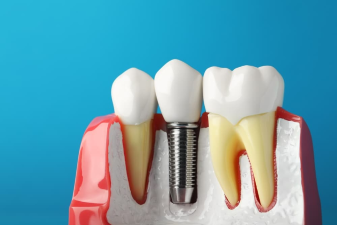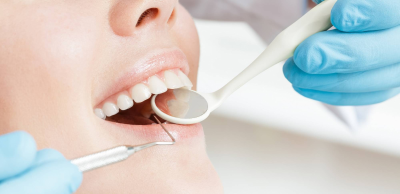Stress is an inevitable part of life, but its impact can be more profound than many people realize. While most individuals associate stress with mental fatigue or emotional distress, it can significantly affect physical health, particularly oral health.

The Connection Between Stress and Oral Health
Understanding Stress
Stress is the body's response to challenging or demanding situations. It triggers a physiological reaction known as the fight-or-flight response, which prepares the body to react to perceived threats. While a certain level of stress is normal and can even be beneficial, chronic stress can lead to various health problems, including those affecting dental health.
How Stress Affects the Body
When a person experiences chronic stress, several physiological changes occur:
- Increased Hormone Production: The adrenal glands release stress hormones such as cortisol and adrenaline, which can impact various bodily systems, including the immune system.
- Muscle Tension: Prolonged stress can lead to muscle tension, particularly in the jaw and neck.
- Weakened Immune Response: Chronic stress can suppress the immune system, making the body more susceptible to infections and inflammatory conditions.
These changes can contribute to a range of dental issues, demonstrating the intricate connection between stress and oral health.
Common Dental Issues Linked to Stress
1. Bruxism (Teeth Grinding)
What Is Bruxism?
Bruxism is a condition characterized by the involuntary grinding or clenching of teeth, often during sleep. It can also occur during waking hours, usually as a response to stress or anxiety. The exact cause of bruxism is not fully understood, but stress is recognized as a significant contributing factor.
How Stress Contributes to Bruxism
When faced with stress, individuals may unconsciously clench their teeth or grind them, leading to several complications:
- Tooth Wear and Damage: The excessive grinding can wear down tooth enamel, leading to sensitivity, chips, and even fractures.
- Jaw Pain and Discomfort: Bruxism can cause pain in the jaw muscles and temporomandibular joint (TMJ), leading to temporomandibular joint disorder (TMD).
- Headaches and Earaches: The strain on jaw muscles can trigger tension headaches, and in some cases, discomfort can radiate to the ears.
Management of Bruxism
If you suspect that you are grinding your teeth due to stress, consider the following management strategies:
- Professional Evaluation: Consult your dentist for an assessment. They may recommend a custom nighttime mouthguard to protect your teeth from grinding.
- Stress Reduction Techniques: Incorporate relaxation techniques such as yoga, meditation, or deep breathing exercises into your daily routine to help manage stress levels.
- Behavioral Changes: Being aware of your clenching habits during the day can help you consciously relax your jaw.
2. Gum Disease
What Is Gum Disease?
Gum disease, or periodontal disease, is a bacterial infection that affects the tissues surrounding and supporting the teeth. It begins with gingivitis, characterized by inflammation of the gums, and can progress to more severe periodontal disease if left untreated.
How Stress Affects Gum Health
Research has shown a connection between stress and the development or exacerbation of gum disease:
- Hormonal Changes: Chronic stress leads to increased cortisol production, which can contribute to inflammation in the body, including the gums.
- Neglect of Oral Hygiene: Stressful periods may lead individuals to prioritize other aspects of life over their oral hygiene routine, resulting in plaque buildup and gingivitis.
- Weakened Immune Response: A compromised immune system due to chronic stress may struggle to fight off infections, allowing gum disease to progress.
Signs of Gum Disease
Be aware of the following symptoms, which may indicate gum disease:
- Red, swollen, or bleeding gums
- Persistent bad breath
- Loose teeth or changes in bite
- Receding gums
Prevention and Treatment
To manage gum disease and its association with stress, consider implementing the following practices:
- Regular Check-ups: Schedule biannual dental visits for professional cleanings and evaluations to monitor gum health.
- Maintaining Oral Hygiene: Brush your teeth at least twice a day and floss daily to remove plaque and bacteria.
- Stress Management: Engage in activities that help reduce stress and improve overall well-being.

3. Oral Cancers
Overview of Oral Cancers
Oral cancers can affect various components of the mouth, including the tongue, cheeks, lips, and gums. Stress has been linked to behaviors that increase the risk of developing oral cancers.
Stress and Oral Cancer Connection
Chronic stress may lead to the following behaviors that can increase the risk of oral cancer:
- Tobacco Use: Individuals under stress may turn to tobacco products as a coping mechanism, significantly increasing their risk of oral cancer.
- Excessive Alcohol Consumption: Stress may lead to increased alcohol consumption, which is also a risk factor for the development of oral cancer.
- Negligence in Routine Screenings: Stress-related distractions may cause individuals to neglect regular dental visits, where oral cancers could be detected early.
Signs and Symptoms of Oral Cancer
Be vigilant for the following signs, which may indicate oral cancer:
- Non-healing sores in the mouth
- White or red patches on the gums, tongue, or lining of the mouth
- Difficulty swallowing or speaking
- Persistent pain in the mouth
4. Dry Mouth (Xerostomia)
What Is Dry Mouth?
Dry mouth, or xerostomia, occurs when the salivary glands do not produce enough saliva to keep the mouth moist. Saliva is essential for maintaining oral health as it helps neutralize acids, wash away food particles, and protect against tooth decay.
Stress and Dry Mouth
- Hormonal Influence: Stress can lead to decreased saliva production due to hormonal changes and the impact on salivary glands.
- Medications: Many individuals under stress may turn to medications for anxiety or depression that have dry mouth as a side effect.
- Mouth Breathing: Stress and anxiety can cause individuals to breathe through their mouths, leading to dryness.
Consequences of Dry Mouth
Dry mouth can lead to several complications, including:
- Increased risk of tooth decay and gum disease due to reduced saliva
- Difficulty swallowing or speaking
- Halitosis (bad breath)
Management Strategies for Dry Mouth
To manage dry mouth, consider the following approaches:
- Stay Hydrated: Drink plenty of water throughout the day to keep your mouth moist.
- Chew Sugar-Free Gum: Chewing gum can stimulate saliva production and mitigate dry mouth symptoms.
- Saliva Substitutes: Over-the-counter saliva substitutes are available to help alleviate dryness.
5. Oral Injuries
Stress and Oral Injuries
Stress may lead to behaviors that result in oral injuries, such as:
- Nail Biting: Individuals under stress might engage in nail biting, which can damage the teeth and lead to misalignment.
- Cheek or Lip Biting: Stress and anxiety may cause individuals to bite their cheeks or lips, resulting in sores or infections.
- Increased Accidents: Chronic stress can affect focus and coordination, leading to higher chances of accidents that may cause oral injuries.
6. Changes in Eating Habits
Stress-Induced Eating Habits
Stress can affect appetite and eating behaviors, resulting in potential dental consequences:
- Sugar Cravings: Many individuals gravitate toward sugary snacks as a form of comfort during stressful periods, increasing the risk of cavities and other dental issues.
- Neglecting Nutrition: Stress may lead to neglecting a balanced diet, which can impact overall health, including oral health.
- Jaw Clenching during Eating: Stress can cause individuals to clench their jaws while eating, leading to discomfort and wear on teeth.
How to Manage Stress for Better Oral Health
1. Identify Stressors
Taking the time to identify and understand the sources of your stress is the first step in managing it. Keeping a journal can help you track situations that exacerbate stress.
2. Practice Relaxation Techniques
Incorporate regular relaxation practices into your routine:
- Meditation: Practicing mindfulness meditation can help reduce stress and promote relaxation.
- Physical Activity: Regular exercise can reduce stress hormones and boost endorphins, enhancing your mood.
- Deep Breathing Exercises: Practice deep breathing techniques to help alleviate stress and anxiety.
3. Seek Support
Do not hesitate to reach out for support from friends, family, or mental health professionals. Talking about your stressors can provide relief and lead to better coping mechanisms.
4. Maintain Oral Hygiene
Make oral hygiene a priority, especially during stressful times. Maintain a consistent routine of brushing and flossing to protect your teeth and gums.
5. Regular Dental Check-ups
Schedule biannual dental visits for cleanings and assessments to monitor oral health effectively. Inform your dentist about any stress-related oral issues to receive appropriate guidance.
Conclusion
Stress can have a profound impact on your oral health, leading to a variety of dental issues such as bruxism, gum disease, dry mouth, and oral injuries. Understanding the connection between stress and dental health is essential for maintaining a healthy smile.
By identifying stressors, implementing stress reduction techniques, maintaining proper oral hygiene, and attending regular dental check-ups, you can mitigate the effects of stress and promote better oral health. Being proactive about stress management not only enhances well-being but also supports the longevity and health of your teeth and gums. Remember that a healthy mouth contributes to overall health, so take care of your oral health as part of your holistic approach to wellness.



